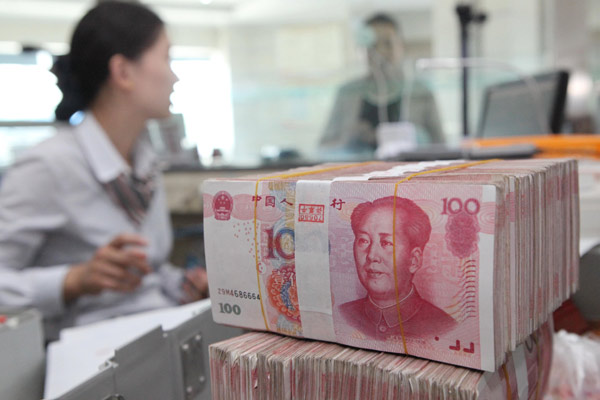 |
|
An employee counts renminbi (yuan) banknotes at a bank in Lianyungang city, East China's Jiangsu province, June 4, 2014. [Photo provided to China Daily] |
The?US senate on Friday ratified reforms to boost the representation of emerging economies at the International Monetary Fund. The approval for plans to give emerging markets more voting power and double the IMF's resources were agreed in 2010, but had been delayed by Congress. China's central bank welcomed the move in a statement on Saturday. Xu Hongcai, an economist at the China Center for International Economic Exchanges, applauds it as a major breakthrough for both developed and developing economies. The following is an excerpt of his interview with China Daily's Cui Shoufeng:
This belated overhaul of the financial institution, which took Washington about five years to approve, has a lot to do with the country's reluctance to give emerging economies a greater say in IMF affairs. It is high time that the United States gave freer rein to emerging economies to improve the IMF's credibility and legitimacy, as well as its own international image.
As the engine of global growth, China deserves to be the third-largest shareholder in the IMF given its annual contribution of over 30 percent to the world economy. This will also give the IMF sufficient permanent financial resources to preserve economic stability and tackle financial crises.
But by holding the largest share of IMF voting rights, the US will retain its veto power in the years to come. That will hardly help emerging countries, many of which have failed to impress with their recent economic performance. Therefore, they will have to work closely together to boost their growth and international influence, instead of relying on the aid offered by the Washington-based crisis lender.
The Asian Infrastructure Investment Bank and the New Development Bank established by the BRICS economies (Brazil, Russia, India, China and South Africa) are feasible economic alternatives that can promote South-South cooperation, as well as a more inclusive economic order, if the synergies between them be fully exploited.